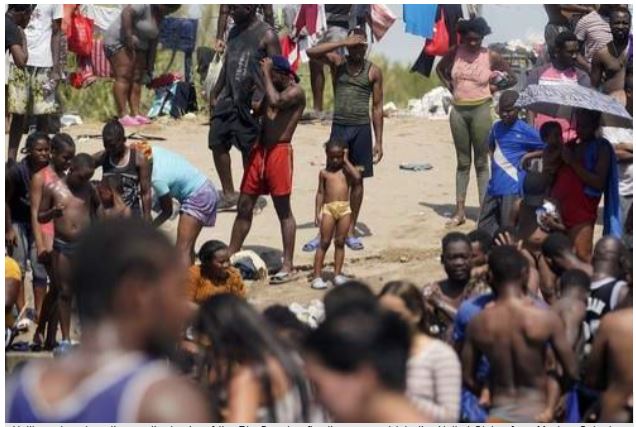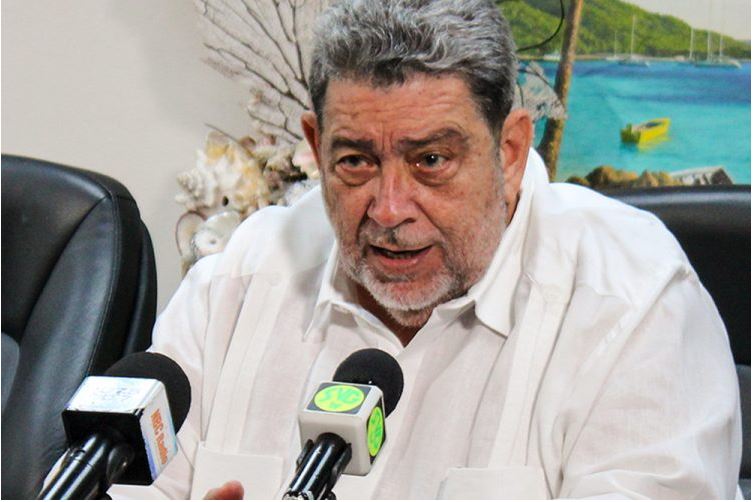The United States is preparing to nearly double the number of Haitians being deported to this Caribbean state from Texas, raising alarm that thousands of cash-strapped migrants will add a new dimension to the humanitarian crisis in a country torn apart by violence, natural disaster and political strife.
The Western Hemisphere’s poorest nation is already dealing with a convergence of crises — including the aftermath of a presidential assassination, a deadly earthquake, worsening food insecurity and rising social anarchy amid a grab for territory by gang warlords.
So limited are resources to aid returning deportees — some of whom are coming back to their country for the first time in years — that they are essentially leaving the airport with little more than a hot meal, basic hygiene kits, a medical assessment and a small cash handout, setting out without the promise of transportation or shelter.
Several deportees — including one who arrived Monday and five others who arrived Tuesday — said they and “many” other deportees had been shackled during transit, including on flights, with one describing it as being chained “like a slave.”
On Sunday and Monday, several hundred migrants per day arrived on up to three flights to Port-au-Prince, with four flights scheduled for Tuesday. International agencies were told earlier Tuesday that the United States would begin ramping up to as many as seven flights daily, divided between Port-au-Prince and Haiti’s second-largest city, Cap-Haïtien, starting Wednesday.
However, late Tuesday, a U.S. official said two planned flights on Wednesday would be canceled after officers were assaulted in Port-au-Prince earlier in the day. The incidents resulted in “non-life threatening injuries” to three ICE officers. The frequency of the Haiti flights will increase to seven per day starting Thursday, the U.S. official said.
“We’re talking about potentially up to 1,000 people per day,” said Giuseppe Loprete, Haiti mission chief for the International Organization for Migration. “This is our understanding. This is our challenge.”
A spokesperson for the Department of Homeland Security said the department could not confirm the flight plans, citing operational and security factors.
Jean Negot Bonheur Delva, head of Haiti’s migration office, said the government did not “have the means” to provide housing or other assistance for so many new arrivals.
What to know about Haiti and the assassination of President Jovenel Moïse
“The precarity and the insecurity will increase exponentially,” he said. “It’s one crisis too many.”
Bonheur Delva said that he had “personally” called for a moratorium to the flights but that he was unaware whether Haiti’s interim government had made any official request. Haiti’s embattled interim prime minister, Ariel Henry, is clinging to power, holding on in part because of his backing from the United States.
Bonheur Delva suggested Henry, who did not respond to a request for comment, was in no position to ask the Americans to halt the flights, even though Haiti cannot cope with the escalating numbers of returnees.
“We do not see much from his office,” Bonheur Delva said of the prime minister. “We need to understand that this is a relationship between a big and a small country.”
Amid a growing outcry from some Democrats — particularly after widely published images on Monday of mounted Border Patrol agents attempting to grab migrants and using their horses to push them back toward Mexico — the administration has sought to defend the mass deportations.
The State Department said Monday that Secretary of State Antony Blinken had spoken with Henry about “cooperation to repatriate Haitian migrants on the Southern border of the United States.”
“The United States and Haiti share a mutual concern for the safety of Haitian citizens and discussed the dangers of irregular migration, which puts individuals at great risk and often requires migrants and their families to incur crippling debt,” the State Department said.
In a phone interview, Foreign Minister Claude Joseph said Haitian officials were trying to “work together in a more structural way” with “our American friends,” as well as Mexico, Chile and Brazil, to resolve the problem of the deportees.
Many of the Haitian migrants had lived for years in Chile and Brazil before venturing north in recent weeks and months. Some Haitian parents are being deported with children who have Chilean and Brazilian passports, and many say they would prefer to go back to those countries now but lack the financial means to get there.
“It’s not going to be easy for us,” Joseph said. “But they are Haitians and we need to do our best to welcome them.”
Haiti’s prime minister addresses questions about the president’s assassination
Some of the deportees hailed from Haiti’s devastated south. More than a month after a deadly earthquake struck that region and killed more than 2,200 people, more than half of those in need have yet to receive aid, according to the United Nations. More than 137,000 homes were damaged or destroyed; 212,000 people have lost access to safe drinking water.
“I don’t understand why the Biden administration is adding another problem,” said Pierre Esperance, director of Haiti’s National Human Rights Defense Network.
Jeeffry Seendhy Youssheff Pierre, 27, landed Monday in Port-au-Prince on a deportee flight. He spent his first night at the home of a distant friend but had been told there would be no more room for him.
So early Tuesday, he returned to the airport, desperate for information on how he could return to Chile — the nation he migrated to four years ago before trekking to the Texas border in recent weeks.
He is from a Haitian island off the central coast. “But I can’t go back there,” he said. “My mother is poorer than I am. We would starve.”
He left Chile “because I couldn’t get legalized and life was hard, so I tried to go to the United States,” he said. “But I can’t stay here. Haiti is hell.”
He and other deportees said U.S. authorities bound them in chains during the trip.
Deportees on Immigration and Customs Enforcement flights are regularly shackled with handcuffs and sometimes leg restraints during the boarding and takeoff process. Officers sometimes remove the restraints before landing, but they will leave them on passengers who they view as potentially noncompliant or threatening. The deported Haitians said they took strong affront from the action. DHS did not respond to a request for comment.
“They chained me like a slave and brought me back to Haiti without telling me where we were going,” he said angrily. “I have never stolen. I have never sold drugs. Why would they treat me so badly?”
He said he had received the equivalent of $25 from authorities after he got off the plane and feared he would not survive long on so small a sum. Authorities have promised $100 per person, but shortages of cash have hampered initial handouts.
“What am I going to do when the money runs out?” he asked.
Distressed Haitian returnees arriving to Port-au-Prince caused “two separate disruptions,” DHS officials said late Tuesday. “Haitian crowd control officers responded to both incidents and resolved the situations,” the department said in a statement.
U.S. Immigration and Customs Enforcement “fully respects the rights of all people to peacefully express their opinions, while continuing to perform its immigration enforcement mission consistent with our priorities, federal law and agency policy,” the statement read.
Three ICE officers sustained non-life threatening injuries in the incidents, officials said.
The Biden administration is not conducting the flights as formal deportations, relying instead on an emergency provision of the U.S. public health code known as Title 42 that allows authorities to bypass normal immigration proceedings. It generally does not allow asylum seekers a chance to request humanitarian protection in the United States.
A federal judge last week ordered the Biden administration to halt the use of Title 42 for migrant families, but he stayed the ruling until the end of the month.
Homeland Security Secretary Alejandro Mayorkas told senators Tuesday that DHS intends to empty a Del Rio, Tex., camp — where in the past week thousands of Haitian migrants have gathered — within the next 10 days. He said he expected “dramatic results” over the next two to four days as authorities send caravans of buses to transport migrants out of Del Rio.
On Tuesday, the U.N. high commissioner for refugees, Filippo Grandi, condemned the U.S. deportations, saying they denied “most people arriving at the southwest U.S. land border any opportunity to request asylum.”
Loprete, of the International Organization for Migration, said that the U.S. government had offered initial funding to provide reception assistance, including the hygiene kits, medical consultations and one-time cash gifts. But he said concern was rising about the ability of his agency and the Haitian government to handle “up to 14,000 migrants, potentially in three to four weeks.”
Yranese Melidor, 44, stood barefoot on the sidewalk outside the airport Tuesday after arriving in Port-au-Prince from Texas. She said she felt as if she had stepped into “a nightmare.” She had left Haiti as teenager, spending years in the Dominican Republic before migrating to Chile five years ago.
She said she had been treated badly there — “spat” on by people who told her to “go back to her country.” She said she thought things would be different in the United States.
Sobbing uncontrollably as she spoke, Melidor said she had no family in the capital and was no longer on speaking terms with her father in the south. She had children in the Dominican Republic, she said, but had lost her cellphone and did not have their phone numbers. She had no idea how to get across the Dominican border and no idea where she would sleep.
“I would have preferred to die instead of all this misery,” she said.




